Several people, including two students, testified before the House Judiciary Subcommittee on the Constitution and Limited Government at a hearing on Wednesday.
Shabbos Kestenbaum, a graduate student from Harvard University, and Eyal Yakoby, an undergraduate student at the University of Pennsylvania, spoke at the hearing which sought to address the allegations of antisemitism occurring on several university and college campuses throughout the United States.
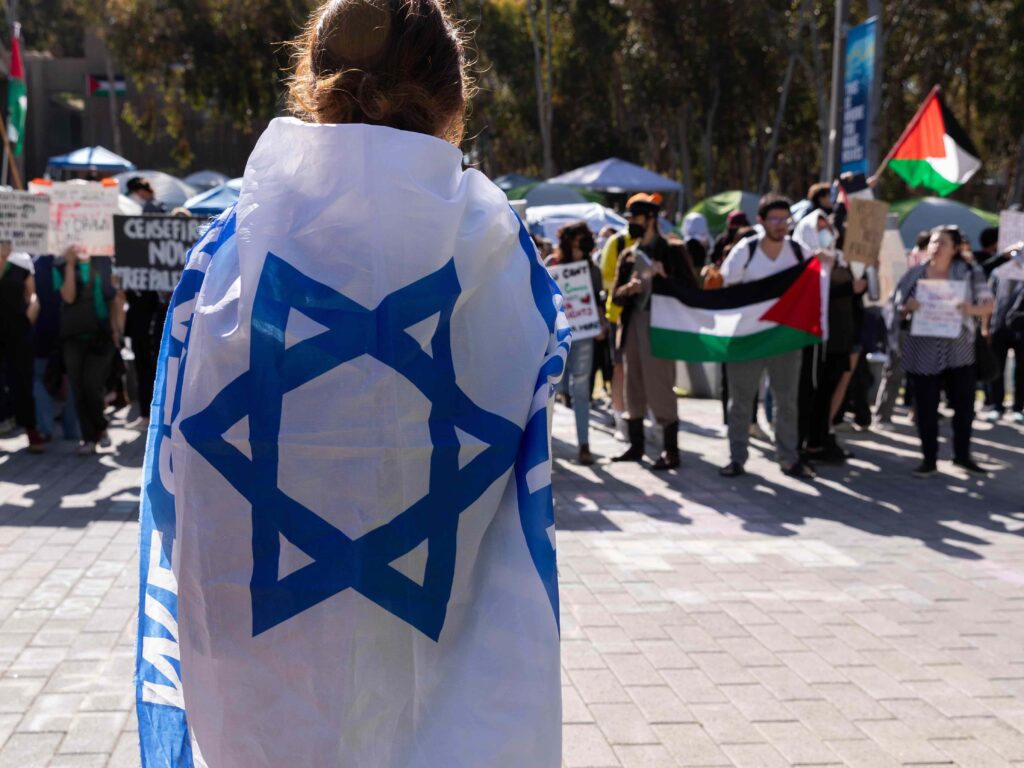
A woman, wrapped with an Israeli flag, attends a counter-protest as pro-Palestinians set up an encampment at University of California San Diego in San Diego, California, on May 5, 2024. (Grace Hie Yoon/Anadolu via Getty Images)
In the aftermath of Hamas’s October 7, 2023, attack on Israel, which left 1,200 people murdered and more than 250 people taken as hostages, antisemitic incidents in the U.S. rose 360 percent, according to a report from the Anti-Defamation League.
Yakoby pointed out that the rising number of antisemitic incidents across the U.S. is not just “an issue for Jews” but is an “issue for all Americans.”
“It is an issue for all Americans,” Yakoby said during his testimony. “On October 7th, Israel was physically attacked, but ideologically, every free country had been infiltrated. Because the same people who wave the flags of Hamas are burning the flag of the United States.”
Protesters from Harvard University, George Washington University, and other universities hung the Palestinian flag. At the University of North Carolina Chapel Hill, pro-Palestinian protesters took the American flag down and replaced it with the Palestinian flag.
Yakoby added: “I am a firm believer in the First Amendment, but the vandalism, assault, and trespassing that is taking place across college campuses are conduct, not speech. More specifically, it is unlawful conduct. But at Penn, bigotry and violence seems to be permitted.”
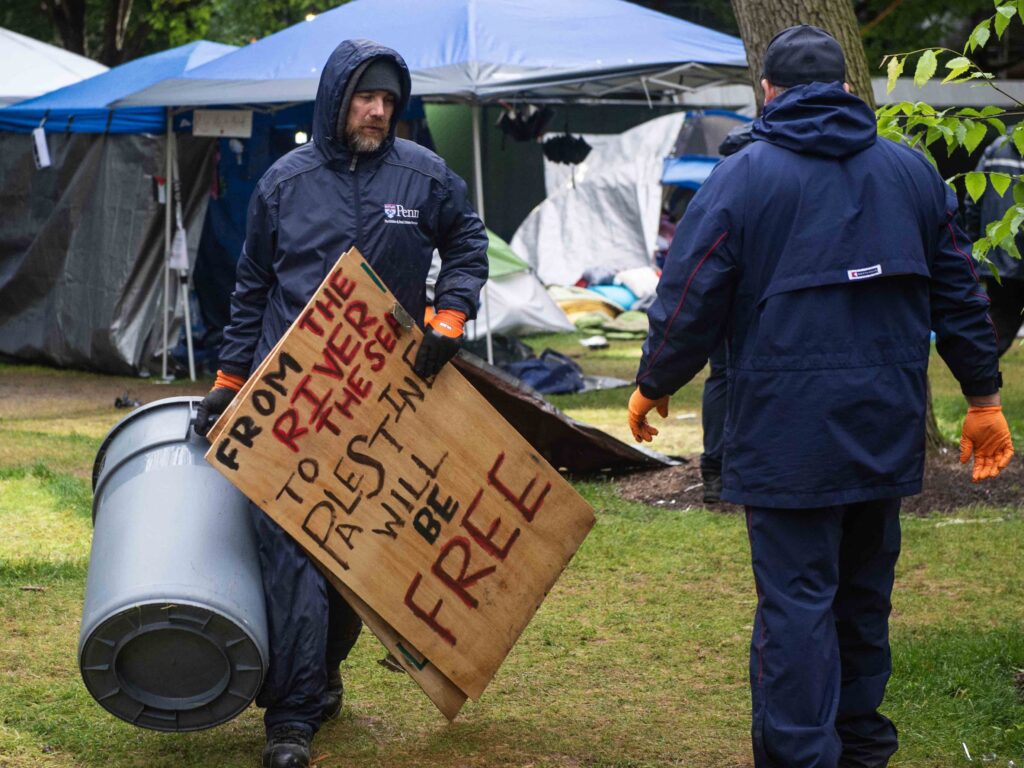
Maintenance staff and waste disposal crews clean up after police cleared a pro-Palestinian protest encampment on the campus of the University of Pennsylvania in Philadelphia, PA, on May 10, 2024. (MATTHEW HATCHER/AFP via Getty Images)
Yakoby continued to explain that the president of the University of Pennsylvania released statement after statement acknowledging that there were “blatant violations of University policies” occurring and that each day the encampment remained made the campus “less safe.”
“Penn, after 16 days finally disbanded the encampment, declaring, ‘Our community has been under threat–for too long,'” Yakoby continued. “The university finally acknowledged reality; we, as students, for far too long endured danger. So let me ask you this, what value is such an acknowledgement if action takes two weeks?”
On May 10, law enforcement officials cleared the anti-Israel encampment that had been established at the University of Pennsylvania, resulting in 33 protesters being arrested. The encampment had been established on April 25, and 16 days later, it was cleared.
“Members of this committee, I appear before you with an urgent warning,” Kestenbaum shared. “The treatment of Jewish Americans on college campuses across this country, and in particular at Harvard University is nothing short of a national emergency. It is blatantly antisemitic, it is frighteningly discriminatory and it is deeply un-American.”
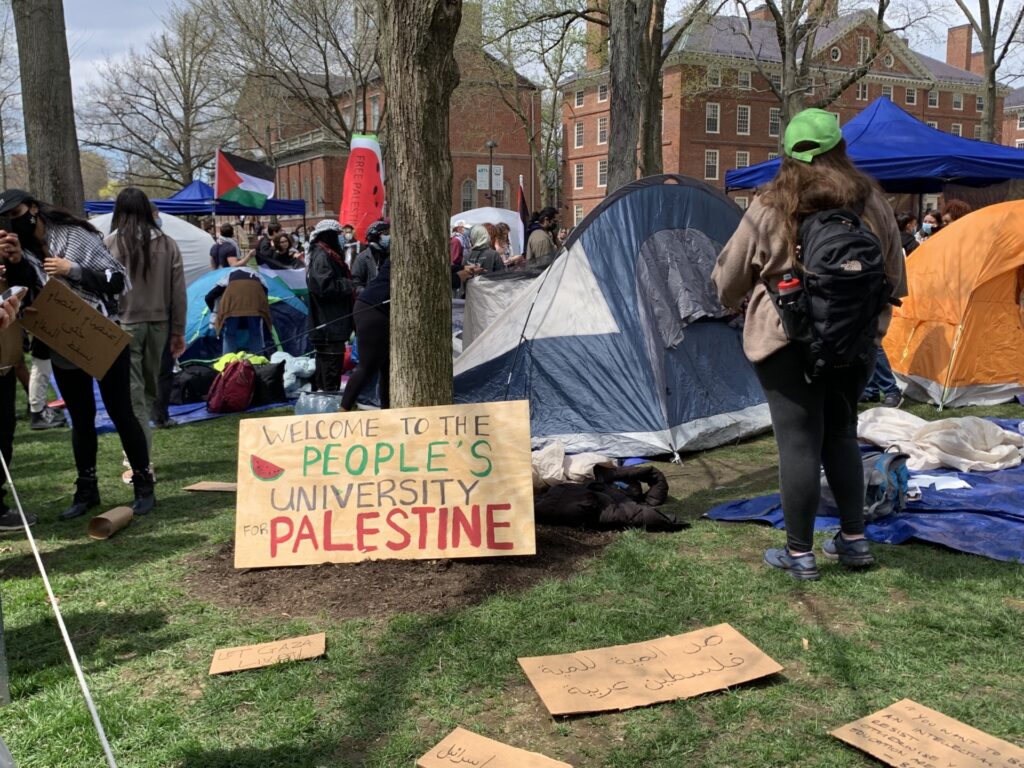
The Harvard Yard anti-Israel encampment, photographed on Wednesday, April 24, 2024. (Obtained by Breitbart News)
Kestenbaum detailed what the “last three weeks” at Harvard University had been like.
On the first day of Passover, hundreds of Harvard students and faculty members set up encampments in Harvard Yard in direct violation of Harvard policies, demanding that Harvard divest all money from the Jewish state. The protesters cheered thunderously when they replaced the American flag overlooking Harvard with that of Palestine. They screamed about globalizing the intifada, drew pictures of our Jewish university president with horns and a tail and screamed at all hours of the day that, “Palestine will be Arab.”
Perhaps, most concerning, the protesters established their own rule of law on campus, creating self-appointed safety marshals to patrol the campus. These safety marshals followed Jews, like me, on our way to class, monitoring our every move. They often recorded us and demanded that we leave their encampment, as if we did not have a right to exist at Harvard. But, they did nothing when their encampment participants physically threatened Harvard community members.
The encampment at Harvard University ended on Tuesday after university officials agreed to reverse the suspensions of several protesters involved in the encampment and offered to give protesters the chance to meet with the university’s governing boards to talk about divestment from Israel.
Anti-Israel protests and encampments sprouted up on college campuses throughout the nation in support of an initial one that was established at Columbia University on April 17. While the first encampment at Columbia University was removed on April 18, another one remained until April 30 when the New York Police Department conducted a raid after protesters seized control of an academic building on campus.
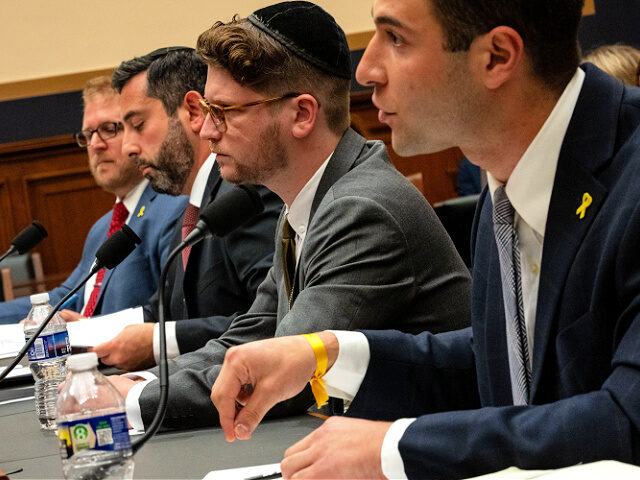
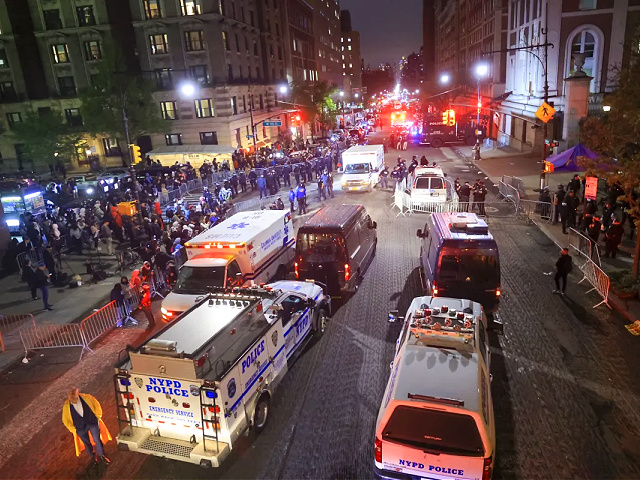
COMMENTS
Please let us know if you're having issues with commenting.